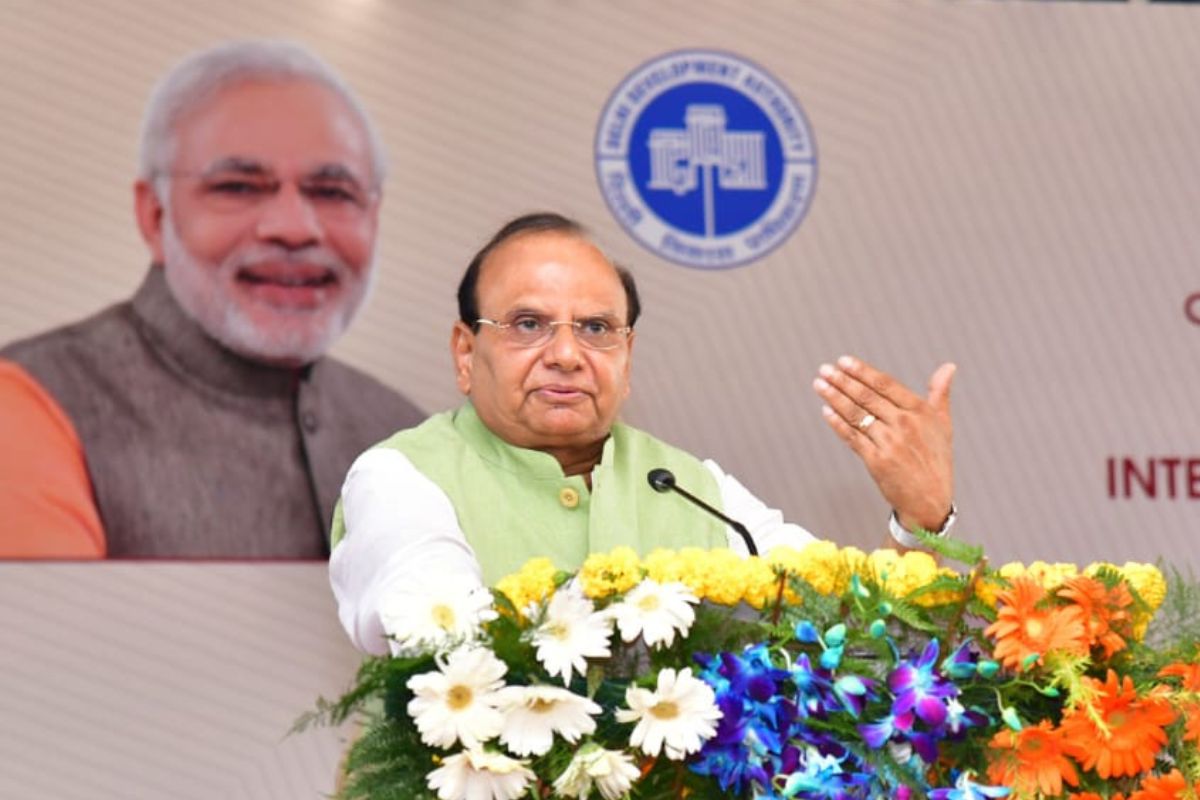Delhi Lieutenant Governor VK Saxena has approved and forwarded the proposal of the Delhi Police to the Centre to issue notification under Section 2 of the Union Territories (Laws) Act, 1950 for extending the Telangana Prevention of Dangerous activities Act, 1986, as modified to the NCT of Delhi.
The Act is applicable for the prevention of dangerous activities of bootleggers, drug offenders, immoral traffic offenders, land grabbers, food adulteration offenders, fake document offenders, scheduled commodities offenders, gaming offenders, sexual offenders, explosive substances offenders, arms offenders, cyber crime offenders and white collar or financial offenders, said the LG office adding that the Ministry of Home Affairs will take the decision in this regard.
The Delhi Police in June, 2022 asked for the approval of the competent authority for the issuance of a notification for extending the above Act to the NCT of Delhi citing ‘a need for stringent legislation for prevention and effective control’ of criminal activities, particularly, by repeat offenders involved in boot-legging, land grabbing, snatching, robbery, arms running, sale of drugs, gambling, sexual offences, etc.
The Act enforced in Telangana is an effective legislation which provides for preventive detention of desperate criminals and members of the organised syndicates whose criminal activities adversely affect or are likely to affect adversely, the maintenance of public order.
The Section 2 of the Union Territories (Laws) Act, 1950 prescribes that the Central government may, by notification in the Official Gazette, extend to the Union Territory of Delhi, any Act in force in some other states with any restrictions and modifications, as it deems fit.
The proposed notification, if approved by the MHA provides that the government (Lt Governor in case of NCT of Delhi) may, if satisfied, with a view to preventing a person from acting in any manner prejudicial to the maintenance of public order, it is necessary to do, make an order directing that such person be detained.
It also has sufficient embedded provision to prevent any misuse of the Act by providing an advisory board to ratify detentions and their extension. All detentions under the Act, will be subject to ratification by the advisory board and in the event of the advisory board not ratifying any detention the person will be released.
According to the LG office, the period of such detention shall not in the first instance, exceed 3 months and the maximum period of detention shall not be more than 12 months from the date of detention. In every case where a detention order has been made under this Act, the government shall within 03 weeks from the date of detention of a person, place the matter before an advisory board constituted by the government for this purpose. The advisory board shall consist of members who have been Judges or are qualified to be appointed as judges of a High Court.












